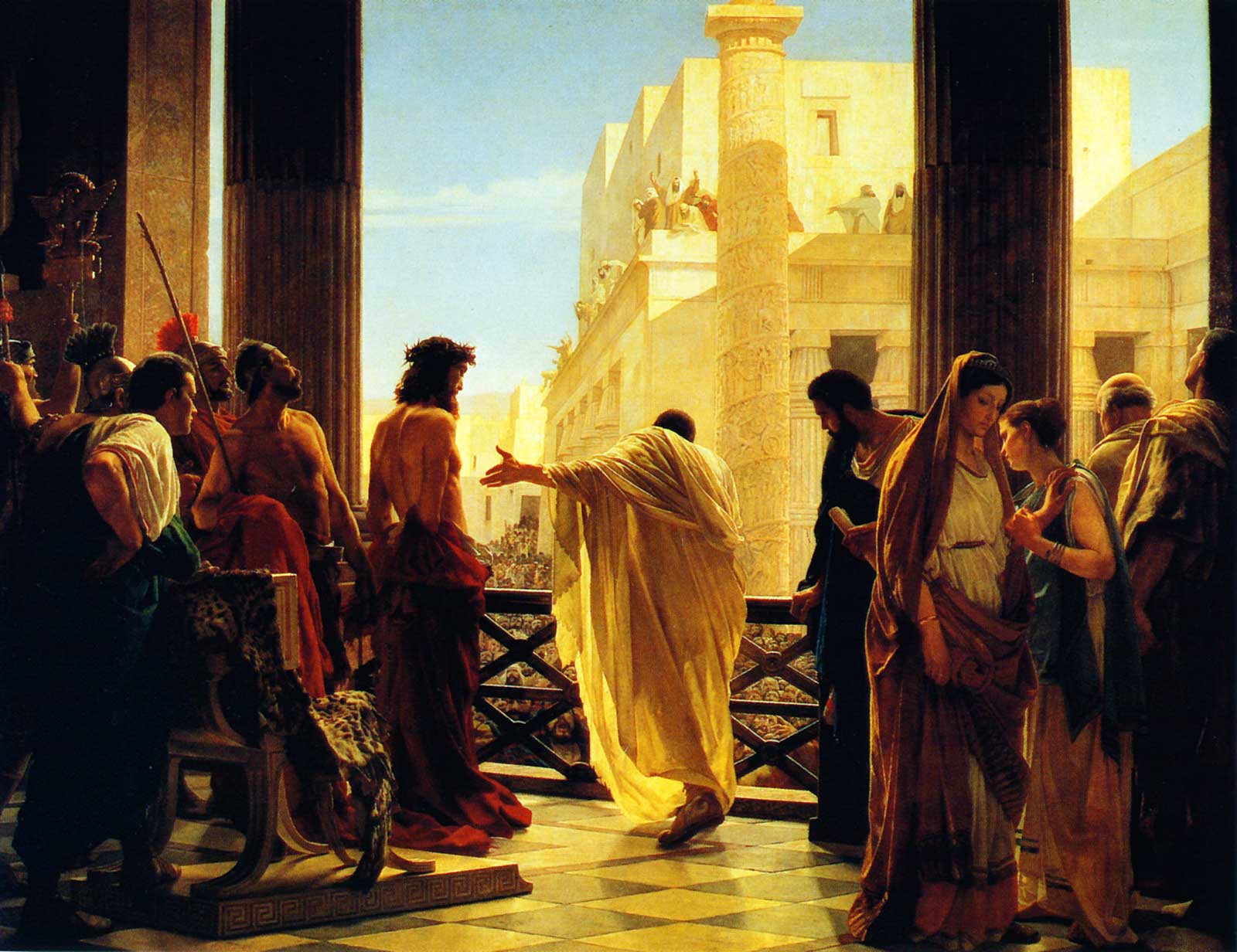Me too. I loved that show. Something about watching totally hapless folks who have essentially nothing in common crash and burn in their feeble attempts at a relationship. Like most good reality TV, all it does is make you feel better about your own life. Anyhow, if you're unfamiliar with the concept of a blind date, allow Therapist Joe to explain it to you:
A blind date is when you go out on a date with someone, without knowing anything about them, including what they look like, their interests, whatever, in the hopes that things will totally spark between you.
That's a blind date. And with most folks (oooooh, I'd say almost the vast majority of folks), they end up blind dating churches. And you know how blind dates work, don't you. Of course you do. You've heard about them from complete strangers. The way blind dates work is that a friend of yours offers to set you up with the cute girl that he and his son know from work. And you head out to the park / nightclub / library and meet up with her, and only after you've spent some time together do you actually find out what she's all about.
Now, one of the points that I made on Sunday was that being in a church is an awful lot like being in a relationship. No, scratch that. It is being in a relationship. A relationship with a congregation is a lot like a relationship with a human being: First of all, for a lot of us Lutherans, it was a sort of arranged marriage, where our parents brought us to church, and we stuck around. But for a lot of other folks, churches get introduced to people in the same way that blind dates do, by saying "Hey, I know this Anglican down the street, and she's super-cute. Maybe you should go check her out sometime."
And so it goes. Like with the majority of relationships we enter into, church relationships are frequently not based on too much substance. It's about looks, it's about music, it's about movies, it's about going bowling, hanging out in the park, whatever. And then you find out what a person's really all about waaaay later. Growing up, in high school (grades 10-12, saskies), the most important things someone could have going on were how they looked, and what kind of movies and mu sic they liked. Aside from that, not much else mattered. And we all thought, growing up, that if you found someone who shared your same values, your same beliefs, your same views on the future, all that, but they didn't like the same movies as you, then the whole thing was shot right out of the gate.
Well, in a desperate attempt to get things together, this last Sunday was our observation of Reformation day, the time in the church in which Martin Luther broke off from the church on earth as it had been at the time, and reformed it.

 Seriously, these two guys are not the same guy. How are you still getting them confused?
Seriously, these two guys are not the same guy. How are you still getting them confused?The idea was that the church was corrupt. Big deal, I hear some of you saying, the church has always been corrupt! Okay okay, but hold on a moment here. The corruption of the church was at a spectacular high, partially due to the lack of belief in what the Christian church actually taught. Yes, saith everyone, the church offered up a different reality from what was contained in the Bible, and in the words of Jesus Christ. As it seemingly always has, right?
But the difference was, back then, nobody could possibly keep the church to account. Because nobody else knew what was in the Bible. The relationship that you had with your church was completely stuck permanently at the phase of admiring her beauty, without ever getting to know what she was all about. If you do yourself a favor and take a stroll through the greater and more elaborate churches in Europe (less so here in Canada), you'll find a whole bunch of very pretty things. You will find glorious, gorgeous sanctuaries, bedecked in tapestries, carvings, sculptures, paintings, and the like. A lot of art, including the stained glass windows. All of this stuff was put in place for a couple of reasons: First of all, to look pretty, which it does. Second of all, to tell the story of the Bible. You should all know how picture books work by now, that children who are pre-literate can sit down with a book full of pictures, recognize the pictures, tell you what they are, and all that, without having to know a single word. It was like that in churches too, in that a great many folks who were attending churches during those great middle ages period were functionally illiterate. And even if they were literate, they sure weren't going around chatting to each other in conversational latin. And with latin being the language of the church, folks who went to church on a Sunday morning didn't understand a word of it. And so they got to go and look at the pretty pictures.
These days, if you go to our church, you don't have a whole tonne of pretty pictures to look at. Some, yes, but not too terribly many.
 |
| Nice, hey? |
 We have a couple of banners, some paraments, and those wooden carvings to either side of the cross. That's it. Why is that? Because unlike pre-reformation stuff, you can listen to what's going on. You can read the Bible for yourself, you can read the catechism for yourself, you can be up on absolutely everything, and perhaps most of all, we can get ourselves outside of the Gandhi view of Christians.
We have a couple of banners, some paraments, and those wooden carvings to either side of the cross. That's it. Why is that? Because unlike pre-reformation stuff, you can listen to what's going on. You can read the Bible for yourself, you can read the catechism for yourself, you can be up on absolutely everything, and perhaps most of all, we can get ourselves outside of the Gandhi view of Christians.
If you get distracted by the bricks, or the paraments, or your smartphone during the service, it's not because you don't understand me, it's because I've gotten boring or irrelevant. Both of those things, I'm sure have happened. But the idea is that whatever you get from me, you don't have to just believe that I'm preaching the word of God. You don't have to be here because of the prettiness of the place or whatever. As far as blind dates go, every week gives us a new opportunity to explore our relationship, both with the church and with God, based not so much on how everything looks, but more on the deeper content of character, of meaning.
Back in high school, deeper content seemed like the least important thing in the universe.
 |
| Can you tell which one is pastor Jim? |
When we were all young and silly, everything but values and culture and such and such seemed pretty important. Movies, tv, music, likes, dislikes, all of that stuff was super important. But after the reformation, we can take some time to listen to the actual word of God. Hear what he says, in our own language. If the pastor of the church is mistaken, we can rebuke him. If the church has fallen away from the teachings of Jesus, we can bring it back, because we can know what it says in the first place. If our Christians are unlike our Christ, we can know that they are, because we know Christ and him crucified.
 Oh, and to disappoint Gandhi, Christians are always going to be unlike Christ. If they weren't, then they wouldn't need Christ. But it's not incumbent on the Christian to be Christ (which is impossible), but to be genuinely honest about why they are not like Christ, and seek forgiveness for that. So when someone says "you're not much like Jesus," we can say "I know. Thank God he sent Jesus so that worthless screw-ups like me could have a chance."
Oh, and to disappoint Gandhi, Christians are always going to be unlike Christ. If they weren't, then they wouldn't need Christ. But it's not incumbent on the Christian to be Christ (which is impossible), but to be genuinely honest about why they are not like Christ, and seek forgiveness for that. So when someone says "you're not much like Jesus," we can say "I know. Thank God he sent Jesus so that worthless screw-ups like me could have a chance."
PJ.
















